William Hemsworth's Blog, page 84
May 28, 2021
Rapture: Did The Church Fathers Teach It?
The rapture is a theory about the end times which has become very popular in certain segments of Protestantism. Recently I came a cross a few articles that attempted to claim that the early church fathers taught this version of eschatology.
What Is The Rapture?Within the realm of theological thought, the rapture is a new construct. Though some aspects of premillennialism were taught through history, a pretribulation rapture didn’t come about until 1830. A preacher by the name of John Nelson Darby began teaching it in 1830. The rapture movement caught fire in America with it being propagated in the Schofield Study Bible.
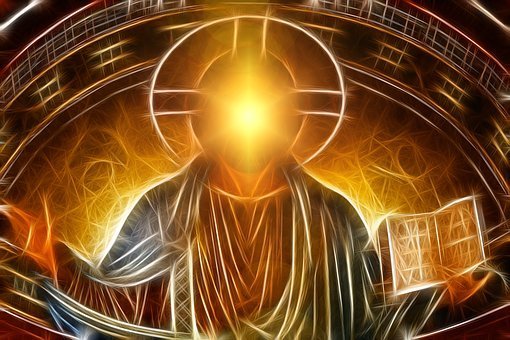
It teaches that at the end of time Jesus will come back to get those who are saved before the seven year rapture begins. Scripture tells us that the Lord will come again, but it will be to judge the living and the dead. This theory of the end times actually has Jesus coming two more times, once to get the saved, and another seven years later to judge the world. It is novel, unscriptural, and nobody in the church taught it until the 19th century.
Interview On The TopicOn May 18 I was a guest on Hands on Apologetics which is hosted by apologist Gary Michuta. It airs on Virgin Most Powerful Radio Monday-Friday at 1pm EST. We went into depth on this topic and dived deep into what the early church really believed.
The post Rapture: Did The Church Fathers Teach It? appeared first on William Hemsworth.
May 27, 2021
Slow down My Friend
In many ways 2019-2020 seems so long ago. It seems like an eternity in some regard. Our lives have been flipped upside down in a mere matter of months. This year has been unlike one that we have ever experienced. We have all made sacrifices and had to change the way we go about our daily lives. From a practical point of view some of those changes have been a positive in my life. The Lord showed me the importance of taking a step back and slowing down. We all need to slow down.
Our society is one that is constantly on the go. Think about it for a moment: when do you slowdown?
The Need To Slow DownIf you are like me then the only time you slow down is when your head hits the pillow at the end of the day. My days before COVID were a whirlwind and, at least in my mind, there was no time to rest. I am a father of four, work fulltime, have a podcast, a YouTube channel, teach at church, write, and I am also a Ph.D. student. My days started at 4:00am and I would go to bed at 11:00pm.
I list these things not to brag, but to demonstrate how busy our lives have become. I suspect that I am not the only one. Amid this hectic schedule where do I fit in time with the Lord, let alone sleep? The pandemic quickly turned into a time of self-reflection.
 Pray And Read Scripture
Pray And Read ScriptureThough I had read scripture everyday prior to the pandemic, I believe that I got into a habit of doing to say I did it. Was I praying and pondering what I was reading? Not really, because I was already thinking about all the things I had to do. In late March I read Proverbs 12:1 which states, “Whoever loves discipline loves knowledge, but he who hates reproof is stupid” (ESV-CE).
It dawned on me that my busyness was distracting me from my relationship with the Christ. I was doing all these things for Him, but the rigor of my schedule took the place of building upon my relationship with him. When I read that passage from Proverbs, I tried to rationalize my schedule. I would say “Lord I need to make money to feed my family, my podcast, writing, and YouTube are all about you. I need to do these things to spread the word about you and your Church”. The bottom line is that we all try to rationalize things.
Give The Lord Part Of Your DayFor a period of five days I woke up early and prayed for 30 minutes. No phone around, no technology, just the Lord and me. There was a lot that happened during these 30-minute prayer sessions. Two words were very prominent . . . slow down. Like an engine at full throttle I had been redlining for a long time. The stress and lack of sleep were beginning to take their toll.
This 30-minute period of prayer and scripture reading was not only refreshing, but energizing. By giving times to God something profound happened. It was like time was being multiplied. Slowing down allowed me to reprioritize and I not only spent more time with God, but also with my wife and children. Not only that but everything on my plate was still getting done, but it was improved.
We all have things to do, but as Catholic Christians we need to remember that the enemy is using every tactic possible to keep our minds from God and the Church. Seemingly good things can become a distraction if we are not careful. Keep your eyes on the Lord and everything will fall in place. Slow down. Slow down.
The post Slow down My Friend appeared first on William Hemsworth.
May 26, 2021
Asking Questions About Jesus Is A Good Thing
Children are full of questions. They are beautiful little creatures and as babies they make cute sounds. When they reach the toddler age they start to ask more questions. When they reach the age of five or six the questions come at a rapid-fire pace.
This happens as their brains develop, and they are starting to learn and investigate the word around them. As a child asked many questions to learn, the Church did something similar when developing a proper Christology. The role of questions in the development of New Testament Christology is something that cannot be underestimated. In his book, Jesus: A Portrait, Gerald O’Collins examines seven key questions that helps establish who Jesus is.
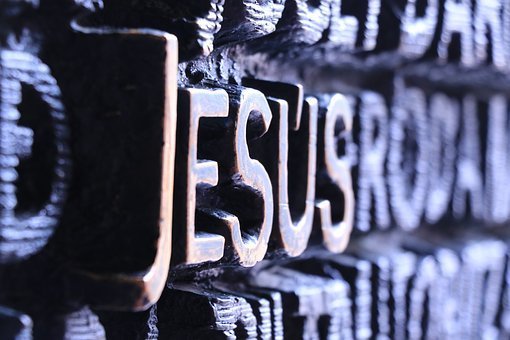 Questions And Jesus
Questions And JesusThe questions that O’Collins discusses in his section titled “Jesus the Questioner” come from the Gospel of John. John is laid out in such a way that it makes a clear statement about the divine nature of Christ (O’Collins 202). The first questions that Jesus poses in the Gospel in found in John 1:38.
Jesus simply asks Andrew “What are you looking for?” (NRSV). In the early Church they were striving to understand Christ in a deeper way. It is important to note that when these questions were being asked the whole New Testament had not been formally compiled.
So, looking solely to scripture would not have been possible, but apostolic tradition played a big role in the process. We are all looking for something, and that something is the savior. Jesus asks this question in such a way that he is not forcing himself on anyone but challenges us (O’Collins 203).
Jesus In JohnThe above question is only one that Christ asks in the Gospel of John. The following are the remaining six questions:
Will you also go away (John 6:67)? Do you believe this (John 11:26)? Do you know what I have done for you (John 13:12)? Have I been with you so long, and yet you do not know me, Phillip (John 14:9)? Woman, why are you weeping? Whom are you looking for (John 20:15)? Do you love me (John 21:15-17)?
Questions in the Bible are not an obtuse thought or a New Testament invention. Many questions are asked, and many truths and commands are conveyed through their use (O’Collins 202). Christ is God incarnate, came to earth, and he started asking questions.
O’Collins brilliantly states, “The God who says to Adam ‘Where are you?’, and to Job ‘I will question you’, has come among us and slips at once into the divine habit of asking questions” (O’Collins 202).
 The Church Did The Same To Fight Heresy
The Church Did The Same To Fight HeresyLikewise, the Church followed the example of its founder and started asking questions. These questions led to inquiry, scriptural exegesis, and a deeper consultation of Sacred Tradition. Because of questions there were various heresies that popped up.
Some of these, such as Arianism, were very popular and lasted longer than anyone would have thought. These heresies also brought up more questions about the nature of Christ, and the Church was forced to answer more questions.
This led to a better understanding of Christology and served as the foundation for our understanding today. Questions were vital in this process.
Works CitedHoly Bible, New Revised Standard Version
O’ Collins, Gerald. Jesus: A Portrait. New York: Maryknoll, 2013. Print
The post Asking Questions About Jesus Is A Good Thing appeared first on William Hemsworth.
May 25, 2021
The Virgin Mary Through History
I recently had the opportunity to chat with Mike Aquilina and discuss the Blessed Virgin Mary throughout history. He wrote a great book on the subject titled “History’s Queen“. We touch on some aspects such as what those in the Apostolic age thought about her, how she brought comfort through the plagues, and how she brought converts in our Lady of Guadalupe.
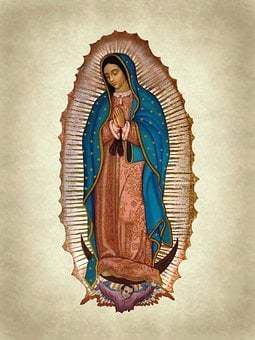 About Mike Aquilina
About Mike AquilinaMike is a popular author working primarily in the area of Church history, especially Patristics. He has written more than 60 books, has hosted eleven television series on EWTN, and is a contributing editor of Angelus magazine. Some of Mike’s most important and popular books have been those on the Fathers of the Church, such as The Way of the Fathers: Praying with the Early Christians in 1999 and The Fathers of the Church in 2006. His books have been translated into languages as diverse as German, Portuguese, Croatian, and Braille. The Grail Code has appeared in ten languages since its publication in 2006. Mike’s 2015 book Ministers and Martyrs was an official companion volume to the NBC series A.D. The Bible Continues.
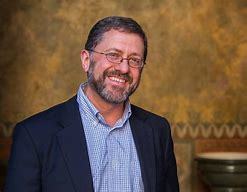 Mike Aquilina
Mike AquilinaIn recent years, he has hosted many series on the Eternal Word Television Network, as well as two independently produced feature documentaries. One of these was on the great Church Father St. Augustine. Mike Aquilina is also a published poet and songwriter. He collaborated on a book and two albums with Rock and Roll Hall of Fame artist Dion DiMucci. The title song of one of these albums was later performed as a duet by Dion and Paul Simon. A Pennsylvania native, Mike is also a past editor of the Pittsburgh Catholic newspaper, as well as New Covenant magazine. For further details, including a complete list of available books, see Mike’s website, fathersofthechurch.com.
Interview About His book On The Virgin MaryThe post The Virgin Mary Through History appeared first on William Hemsworth.
May 24, 2021
Abortion And Church Teaching
It happens every day in our communities. Every day women make a very difficult decision about whether to keep their babies or not. However, instead of adoption many are choosing abortion. According to data from the Centers of Disease Control, every day approximately 1,788 pregnancies are ended by abortion (this is a conservative number as most sources cite a number closer to 3,000).
What is abortion? What is the official Catholic Church teaching on abortion? Are there any circumstances where an abortion may be needed to save the life of the mother? These questions will be explored over the course of this article, but one thing is certain. Life is precious, and it is something that must be protected from the beginning of life to natural death.
In layman’s terms an abortion is the termination of a pregnancy before the time of gestation is complete. The question of life is one that is central to the topic. When does life begin? If life begins at conception, then life is there and must be protected. If life begins at some further point, then it stands to reason that terminating the pregnancy before that stated period is morally permissible. Then there are those who are just unsure when the fetus becomes a living being.
With abortion defined, that leads to the next question. What does the Catholic Church have to say about abortion? It may come as a surprise to some to learn that church has a lot to say about the topic. The church has defended life from its infancy. Regarding this the Didache states, “you shall not murder a child by abortion nor kill that which is begotten”.
 Abortion Is Not a New Issue
Abortion Is Not a New IssueThe Didache is an ancient catechism in the church that dates back to the first century. The issue of abortion is nothing new, but an ongoing battle for the unborn. Also regarding abortion, the catechism states “Since the first century the Church has affirmed the moral evil of every procured abortion. This teaching has not changed and remains unchangeable. Direct abortion, that is to say, abortion willed either as an end or a means, is gravely contrary to the moral law” (CCC para 2271).
The church gets its teaching on the subject from sacred scripture as well as sacred tradition. Many places in scripture speak of God molding and creating life in the womb. What is conspicuous by its absence is any mention as to at how many weeks of gestation life begins. Sacred scripture makes it clear that it begins immediately. Life begins upon conception. One such verse is Jeremiah 1:5 which states, “Before I formed you in the womb I knew you, and before you were born I consecrated you; I appointed you a prophet to the nations”.
If God knew us before the womb, it makes sense that he knew us when we were immediately placed into the womb. To know is to imply a relationship, and one cannot have a relationship with something that is not alive. Since the embryo is a person upon conception it must be defended as any person should be (CCC para 2274)
The Official TeachingChurch teaching holds that abortion is intrinsically evil, and as such is never justified. The same can be said for many other things such as rape, torture, euthanasia, and kidnapping (Gaudiem et Spes para 27). Though an individual may have the best intentions, it does not justify an act that moral law and revelation have deemed evil.
That is because absolute truth and morality are incapable of being changed. Regarding this Saint Pope John Paul II writes, “If acts are intrinsically evil, a good intention or particular circumstances can diminish their evil, but they cannot remove it. They remain “irremediably” evil acts; per se and in themselves they are not capable of being ordered to God and to the good of the person” (Veritatis Splendor para 81).
Unfortunately, in today’s society, abortion is looked at like a basic human right. Opponents of church teaching give a variety of scenarios to support the need for an abortion. What if an abortion is needed to save the life of a mother? What if the mother had uterine cancer and the only treatment was to remove the uterus, and thus, killing the child in the process? These two examples may seem extreme, but they are ones often given by the pro-choice movement. There are others, but these two questions will be the focus.
When it comes to the life of the mother there are many cases written about by world renowned doctors who say the opposite. Dr. Collen Malloy wrote a letter to the editor of the Chicago Sun Times 2009 stating, “Abortion performed to “save” a mother’s life almost never — if ever — is necessary”. This same article cites a statement by Ireland’s board of Obstetricians which states, “there are no medical circumstances justifying direct abortion, that is, no circumstances in which the life of a mother may only be saved by directly terminating the life of her unborn child”.
 A Matter of Intent
A Matter of IntentThe word that sticks out very prominently in the last quotation cited is the word “directly”. This word is given in many church documents when they discuss abortion. It comes down to a matter of intent. Was it the intent to destroy the child in the womb, or was it the cause of something else? In their book Life Issues, Medical Choices the writers state, “It is never moral to intentionally kill an innocent human being in order to lower the likelihood of adverse effects for someone else” (Smith & Kaczor 37).
This begs the question asked earlier. What if a woman has uterine cancer and the only way to save her life is to remove the uterus? To further complicate things imagine she has a husband and four other children at home. This is truly a heart wrenching decision that must be made. She can forgo treatment and die, and the child in the womb may possibly live. Or she can have the treatment and live to take care of her four other children.
If she chooses to have the procedure it is not a direct attack on the child because it lacks intent. In situations such as this the principle of double effect becomes relevant. The reasoning for double effect requires the following four factors: “1. The act itself is not evil. 2. The evil is not a means to a good. 3. The evil is not intended as an end. 4. There is a proportionate reason for allowing the evil effect” (Smith & Kaczor 50). The first step is satisfied because having a hysterectomy is not evil. The second step is satisfied because the intent is not there.
The mother would much rather give birth to her child. The third step is satisfied as the surgery is not intended to end the life of the child. The forth step is satisfied because if she does not have the surgery she will die and leave her other four children without a mother. The intent is not to have an abortion to live, but her uterus must be removed to destroy the cancer that will inevitably kill her if she does nothing. There is an enormous difference between the two. It is the intent that is intrinsically evil according to Humana Vitae (Pinckaers 53).
Be MercifulThe above scenario is heartbreaking and does happen, but the moral teaching of the church deals with intent. One should consult their physician and spiritual director or priest to get the best well rounded advice for the situation. It is important to remember that these situations are highly emotional, and there is much pain and distress taking place. The same goes for those who may have had an abortion in the past and they realize the mistake they made.
We live in a fallen world, and we have all sinned. We all have some mortal sin that we have committed in the past. It is vital to not judge and to show mercy. In Matthew 5:7 our Lord says, “Blessed are the merciful, for they will receive mercy”. We have been forgiven much and have been shown limitless mercy. It is important to reciprocate it to those who are hurting because of their past mistakes. In the very beginning of sacred scripture we read, “So God created humankind in his image, in the image of God he created them; male and female he created them”.
We have all messed up, and no matter our past we are made in the image of God. As such, we are called to show everyone the dignity and respect that being made in his image calls for. To summarize we must do what the Lord says in the beatitudes. We must show mercy. In Hebrew, showing mercy is being compassionate (especially expressed by רחום): showing pity at another person’s sorrow or misfortune, with the desire to alleviate, or, on occasion, even to suffer in the other’s place. This is exactly what the Lord did for us when he suffered on the cross.
Works CitedKreeft, Peter & Tacelli, Ronald K. Handbook of Christian Apologetics. IVP Academic. Downers Grove, Il: 1994. Print.
Ostrowski, Thaddeus ed., Primary Source Readings in Christian Morality. Winona, MN: Saint Mary’s Press, 2008, Print.
Pinckaers, Servais. Morality: The Catholic View. St. Augustine’s Press. South Bend, IN: 2001. Print.
Smith, Janet E. & Kaczor, Christopher. Life Issues, Medical Choices: Questions and Answers for Catholics. Servant. Cincinatti, OH: 2016. Print
The post Abortion And Church Teaching appeared first on William Hemsworth.
May 22, 2021
Suicide And Heaven: Is There Hope For Victims?
Suicide impacts everyone. There is a suicide in the United States every twelve minutes, and it is the tenth leading cause of death!
Christians Not Immune To SuicideWhy one would resort suicide is a matter of debate and there is hardly a cut and dry scenario to pull from. Not to mention: Christians are not immune to it. On September 11, 2019 an evangelical pastor, Jarrid Wilson, took his own life.
Wilson was a mental health advocate and very open with his struggle with depression. His death brought the subject of suicide and mental health to the forefront. Once again we see the same comments that display a sincere ignorance on the topic.
 What Does The Catechism Say?
What Does The Catechism Say?Are those who die of suicide committed to hell? Are there extenuating circumstances? The Catechism of the Catholic Church addresses these questions in paragraphs 2280-2283.
The Catechism describes suicide as “Gravely contrary to the just love of self. It likewise offends love of neighbor because it unjustly breaks the ties of solidarity with family, nation, and other human societies to which we continue to have obligations. Suicide is contrary to love for the living God” (CCC 281).
In error some stop here to make the point that all who die of suicide were unable to repent of this mortal sin. At this juncture it is necessary to define what makes a sin mortal. For a sin to be mortal the following three criteria must be met: 1) Grave matter, 2) Knowledge that it is wrong, and 3) consent of your free will.
There is no doubt that suicide is something that constitutes a grave matter, but are all who go through with it in the proper frame of mind for all criteria to be met?
The Catechism answers this question with an emphatic “no”! In paragraph 2282 the Catechism reads, “Grave psychological disturbances, anguish, or grave fear of hardship, suffering, or torture can diminish the responsibility of the one committing suicide.”
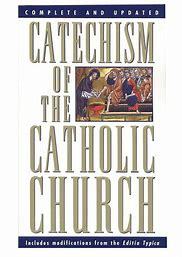 God Alone Judges Suicide Victims
God Alone Judges Suicide VictimsThe eternal fate of those who commit suicide is something that is not for us to judge. That is up to God alone. Who is not to say that someone who fulfilled the three criteria didn’t repent a microsecond before the deed was complete? The person who suffers with severe bouts of depression, as the Catechism says, was acting in a diminished capacity when the act was complete.
In short, only God knows. It is his role to be the judge of all of us (I don’t want that job as it would be a hard burden to bear). In paragraph 2283 the Catechism has this to say, “We should not despair of the eternal salvation of persons who have taken their own lives. By ways known to him alone, God can provide the opportunity for salutary repentance. The Church prays for persons who have taken their own lives”.
God is a loving Father who knows what we are going through, and only he knows what was going on with the person who died from suicide. He alone knows if they were cognizant of what they were doing. The Church calls us to pray for those who have taken their own lives. What good would praying for victims of suicide if was an automatic sentence to hell? The Church asks us to pray for them because we are a Faith of hope and love, not of fear.
They Are LovedThose who die of suicide are created in the image of God. He loves them just as he loves you and me. God alone is the judge, and he is the only one qualified to judge the fate of suicide victims. That would be too big a burden for any of us to bare. Through his Holy Church, God has made known that there is hope for eternal life, and it is the same hope we all have.
Pray for those who died of suicide and pray and comfort their families. Let them know that the Church loves them and is behind them. That includes those loved ones who are no longer on this Earth.
The post Suicide And Heaven: Is There Hope For Victims? appeared first on William Hemsworth.
May 21, 2021
Love Our Enemies? What Does Jesus Mean?
Jesus gives a very clear example of what it means to be the light of the world in Matthew chapter 5. This example is seen in Mt. 5:43-48 which states,
“You have heard that it was said, ‘You shall love your neighbor and hate your enemy.’ But I say to you, Love your enemies and pray for those who persecute you, so that you may be sons of your Father who is in heaven. For he makes his sun rise on the evil and on the good, and sends rain on the just and on the unjust. For if you love those who love you, what reward do you have? Do not even the tax collectors do the same?And if you greet only your brothers, what more are you doing than others? Do not even the Gentiles do the same? You therefore must be perfect, as your heavenly Father is perfect”.
This passage is a clear indication of how disciples of Christ are supposed to treat those who persecute them. However, some background on this passage is in order. One of the titles that Matthew gives Jesus is that of the New Moses.
Old Testament BackgroundWhen one reads the accounts of Moses in the and the life of Christ there are similarities that arise. Moses wandered through the desert for forty years while Jesus went into the desert for forty days to be tempted by Satan. Moses climbed up Mt. Sinai and gave the Ten commandments.
Jesus climbed up the mountain and delivered the ten beatitudes. This was no accident as Moses was the supreme law giver in the Old Testament. That law would be fulfilled perfectly by the Messiah Jesus Christ.
In Deuteronomy 19:21 Moses writes, “Your eye shall not pity. It shall be life for life, eye for eye, tooth for tooth, hand for hand, foot for foot”. However, Jesus is telling us to love our enemies. On the surface this seems like a contradiction, but that is not the case.
The verse in Deuteronomy is meant to convey the necessity for the punishment to fit the crime. In other words, this was not meant as a way to exact personal vengeance but was a guideline for authorities to sentence offenders.
Why mention “eye for an eye” when it isn’t even mention in Mt. 5:43-48? It is mentioned because passages such as Deuteronomy 19:21 evolved through tradition as permission to hate one’s enemy, and that is not was intended.
Jesus Holds Us To A Higher StandardHere Christ is calling his disciples to a much higher standard of conduct over their Jewish counterparts. In layman’s terms, Jesus was setting the record straight.
Indeed, Moses was the supreme law giver, but Jesus is greater than Moses and came to fulfill the law. Jesus would ultimately show us how do this by asking forgiveness for his executioners, but here he elaborates on how to live it.
He wants his disciples to walk the talk. Those who we think are our enemies are those who need the most love. They need the light, love, and mercy that only Christ can give.
The term used by Christ in this passage is agape. It is a term of benevolence, affection, or love, and is used in two basic ways. One way is denoting love between people, and another way refers to the love of God.

Christ is telling his followers to not follow the status quo. For too long people were following the letter of the law, and not the spirit of it. As a result, a law that was meant for just punishment became a guise for personal vengeance.
This is clearly not what God intended and Jesus gets to the point. If his disciples treat others the way that they are treated, then they are no different than non-believers. To tell one’s followers to love their enemies was the very epitome of being countercultural.
Jesus Was CounterculturalHe was also countercultural in regard to who he is referring to as a neighbor in Mt. 5:43. This not something unique to Matthew’s Gospel and can be seen in the other synoptic Gospels as well. The most famous one being the story of the good Samaritan in Luke chapter 10.
Just as correct sentencing of a criminal morphed over time so did the meaning of neighbor. During the time of Christ, the Israelites thought of their neighbor as another Israelite. Jesus, like he did in the story of the good Samaritan, tells his listeners that everyone is their neighbor.
This was another countercultural ideal that would set apart his followers because it shows that his message is for everyone, Jews and Gentiles alike. This even meant the much-hated occupying Roman Empire.
How Will You React?To be clear, this does not mean that to be a disciple of Christ is to be a passivist. If needed self-defense is something one must do, but these verses speak in regard to morality.
Jesus calls his disciples to not hate and to love in a way that shows the love of Christ to all mankind. This shows that with Christ they can look past how their sinful tendencies have them look at others and points them in a whole other direction.
This is seen clearly in Mt. 5:48 where Jesus says that they must be perfect just as the Father is. Jesus calls his disciples to higher standard than that found in the Old Covenant. The Greek word for perfect used is teleios means to be complete or everything that God intends.
Thus, Jesus summarizes what it means to truly love your neighbor as a disciple. This passage sets a great stage for what would occur in chapter nine of Matthew’s Gospel. How are we treating those whom we may not get along with?
The post Love Our Enemies? What Does Jesus Mean? appeared first on William Hemsworth.
The Deeper Truth With John Benko
https://www.podbean.com/media/share/pb-6x6r8-104134a
John Benko joins me for today’s program. John is the founder of Deeper Truth Catholics, and he discusses the beginnings of the apostolate and how it has grown since 2009. In our discussion we also discuss the role of suffering, the crucifixion, and how all of us have gift that can benefit the church.
Learn more about Deeper truth by visiting www.deepertruthcatholics.com.
The post The Deeper Truth With John Benko appeared first on William Hemsworth.
May 20, 2021
Harvest: We Are All Laborers In The Vineyard
“After they had gone away, a demoniac who was mute was brought to him. 33 And when the demon had been cast out, the one who had been mute spoke; and the crowds were amazed and said, “Never has anything like this been seen in Israel.” 34 But the Pharisees said, “By the ruler of the demons he casts out the demons.” 35 Then Jesus went about all the cities and villages, teaching in their synagogues, and proclaiming the good news of the kingdom, and curing every disease and every sickness. 36 When he saw the crowds, he had compassion for them, because they were harassed and helpless, like sheep without a shepherd. 37 Then he said to his disciples, “The harvest is plentiful, but the laborers are few; 38 therefore ask the Lord of the harvest to send out laborers into his harvest.”- Matthew 9:32-38 NRSV
Harvest And LaborersThis Gospel reading is one of my favorites. We see Jesus caring for and healing people, but I think that sometimes verses 37 and 38 are overlooked. We are enamored with the supernatural. After all, we like to talk about the authority of Jesus and the healings that he did. Don’t get me wrong. These things are important and should be discussed. Proclaim them to the rooftops. However we tend to ignore those times that Jesus tells us to do something. We may tend to equate “laborers” in today’s Gospel with priests. That is certainly part of it, and on that note please pray for vocations. There is more to the scenario if we think about it.
 We All Have A Gift
We All Have A GiftThere are people out in the world who need to hear the good news of Jesus, but not everyone is called to be a priest. As amazing as our priests are they can only be in one place at one time. We all have a gift that we can use to minister. Through that gift we are laborers in the vineyard and help raise people up. Some may say that their gift is insignificant. That is a lie from the evil one.
Every gift given to you by God is a gift that he will use to build up his church. In Luke chapter 12 Jesus gives a great example of this. There was a rich man in the temple who was basically making fun of a poor widow because she was only able to offer one coin. Christ said that the widow offered more because she offered all she had. This sentiment is also echoed by St. Paul in his first letter to the Corinthians. Paul says that not all can be priests or apostles, but we are given a gift to build up the church. What is your gift? Is there something you are good at and enjoy doing? You can use that as an offering to Christ to build up his church.
Saint Quotes“Know that the greatest service that man can offer to God is to help convert souls.” St. Rose of Lima
“Jesus, help me to simplify my life by learning what you want me to be – and becoming that person.” St. Thérèse of Lisieux
“You will never be happy if your happiness depends on getting solely what you want. Change the focus. Get a new center. Will what God wills, and your joy no man shall take from you.” Venerable Fulton Sheen
The post Harvest: We Are All Laborers In The Vineyard appeared first on William Hemsworth.
May 19, 2021
Mysteries And Identity Are Revealed in Relationship
When one begins to study sacred scripture the idea of mystery becomes very apparent. The New Testament and Septuagint speak of the Greek word Mysterion. When St. Jerome was translating the Hebrew and Greek manuscripts into what would be the Latin Vulgate, he used the word sacramentum, or sacrament in English. In fact, the sacraments are celebrations of the mysteries of God. The Old Testament has no shortages of these mysteries that give us clues of the nature of God and the sacred mysteries.
Mysteries And GodThe word mystery is an anomaly of sorts. In some circles it is something that is not to be questions, but to be accepted. To others it is an invitation to explore, learn, and grow. At most basic level a mystery is something hidden, and the information needed to understand is not available. When it comes to God it is the opposite.
[image error]God is not some cosmic force that wants to remain hidden from us. He wants us to know Him, and he wants to be known by us. We come to know these mysteries of God through our senses, reason, and faith.
It is through our physical senses that we get to know the world around us. We learn what things smell like, we can see, hear, and see that this amazing world came from something. Science tells us that everything has an origin and cannot come from nothing. It is in this way that our senses testify to the existence of a creator.
Secondly, we come to know these mysteries through the uses of our reason. We come to knowledge of the meaning and purpose of creation, even the creation of our own human lives, through our ability to reason. Through reason we enter into relationship with God. Lastly, the third way we understand the mysteries is through faith. The utilization of faith informs reason and is necessary for a personal relationship with God.
Mysteries And IdentityIn the Old Testament there are many examples of how these mysteries reveal God’s identity, his relationship with humanity, and the nature and destiny of humanity. God’s identity is perhaps one of the biggest mysteries of all because he is transcendent and outside of time.
We get a clue in the book of Exodus when God and Moses are interacting. The passage in question is Exodus 3:14 when Moses asks for God’s name, and God relies “This is what you shall tell the Israelites I AM sent me to you” (NAB). He also has power over creation as he can calm the storms and cause beasts to retreat.
This reveals a God who is creator of all and nothing is above him. This has huge implications when it comes to God’s relationship with humanity. God is not inaccessible and not wanting to be discovered, but quite the contrary. Humanity was made in the image of him who is existence itself.
We read this in Genesis 1:27 which states, “God created man in his image; I the divine image he created him; male and female he created them” (NAB). This shows that we were made to be in relationship with God. When we are in proper relationship we are that image of the divine creator, but when we sin and reject him we die. We have turned our back on God as is seen in Genesis 3:19.
The nature and destiny of humanity is to live. God created man in his image, and he uses our physical senses to make himself known. He uses all means of creation, including the human body, to make himself known.
Saint QuotesMen go abroad to admire the heights of mountains, the mighty waves of the sea, the broad tides of rivers, the compass of the ocean, and the circuits of the stars, yet pass over the mystery of themselves without a thought.-St. Augustine
Now, the end of each thing is that which is intended by the its first author or mover. But the first author and mover of the universe is an intellect, as will be later shown. The ultimate end of the universe must, therefore, be the good of an intellect. This good is truth. Truth must consequently be the ultimate end of the whole universe, and the consideration of the wise man aims principally at truth.-St. Thomas Aquinas
[image error]Priests have received a power which God has given neither to angels nor to archangels. It was said to them: ‘Whatsoever you shall bind on earth shall be bound in heaven; and whatsoever you shall loose, shall be loosed.’ Temporal rulers have indeed the power of binding; but they can only bind the body. Priests, in contrast, can bind with a bond which pertains to the soul itself and transcends the very heavens. Did [God] not give them all the powers of heaven?…What greater power is there than this? The Father has given all judgment to the Son. And now I see the Son placing all this power in the hands of men. They are raised to this dignity as if they were already gathered up to heaven.-St. John Chrysostom
When you approach the tabernacle remember that he has been waiting for you for twenty centuries.
– St. Josemaria Escriva
Catechism of the Catholic Church, 2 ed. New York: Doubleday, 2003. Print.
Holy Bible, New American Bible
The post Mysteries And Identity Are Revealed in Relationship appeared first on William Hemsworth.
William Hemsworth's Blog
- William Hemsworth's profile
- 7 followers



